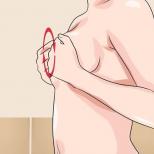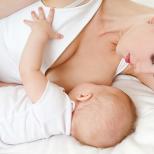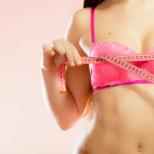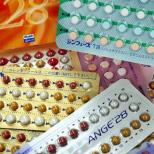A week after menstruation, the chest begins to hurt: causes, symptoms, how to eliminate
In most cases, chest pain appears just before menstruation, and after the discharge stops, the pain goes away on its own, this is quite normal. But, if the chest starts to hurt immediately after menstruation, then the girls have anxiety. What this may be connected with and what danger such symptoms have, only a specialist can answer, therefore it is recommended to undergo an examination.
How and where does it hurt?
Non-pathological chest pain is called mastalgia. This is a very common problem that more than half of the fair sex faces from puberty to menopause inclusive.
Many women and young girls are faced with what they have. This phenomenon is considered quite natural and is explained by the growth of hormones in the blood during this period. More dangerous is pain after menstruation, when other obvious symptoms disappear. In this case, we are talking about mastalgia. This is a disease of the mammary glands, when pain is observed regardless of the cycle.
Experts consider two types of symptoms that characterize mastalgia:
- cyclic. Occur before menstruation and disappear on the 3-4th day of active discharge. This phenomenon is very common, it is faced by more than 70% of women. Treatment in this case is not required.
- non-cyclic. Such pains cause more fear. They occur at any moment, regardless of the cycle. The causes of such a symptom can be household, and also have a pathological character. If you experience non-cyclic pain, you should consult a doctor.
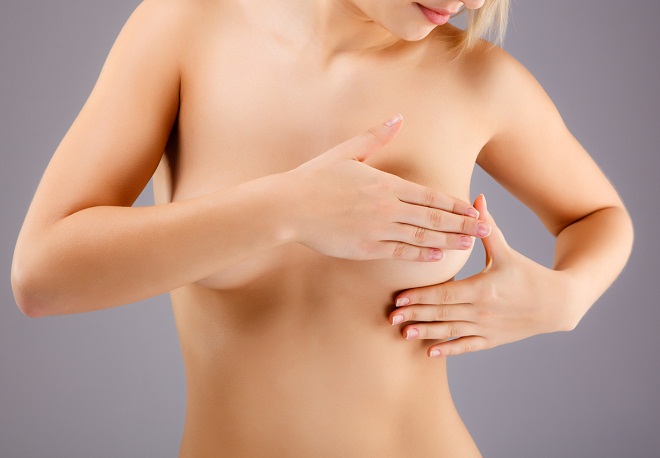
Painful sensations are aching in nature, aggravated by contact. Along with pain, increased sensitivity of the nipples, skin, sometimes palpable seals can be felt. The pain may be temporary, get worse at night, or be constant.
Video "Why does my chest hurt?"
Common causes of pain in the chest, which may appear due to hormonal disruptions, as well as due to serious pathologies.
Possible causes of pain
The first thing you should pay attention to is the cause of chest pain. If we are talking about a teenager, then you should not worry, frequent chest pains signal the growth and development of the mammary glands. Approximately at the age of 17-19, the process stops and the condition returns to normal.
Interesting fact:
But if the breasts began to hurt after menstruation in a mature woman, then it is worth looking for a provoking factor.
The most common causes of pain are as follows:
- pregnancy is a very common cause. Pain and discomfort occurs as a result of breast growth and preparation for breastfeeding. This is one of the first symptoms of pregnancy, pain occurs after 2-3 weeks.
- hormonal disruptions in the body. Pain usually occurs when estrogen levels rise.
- various educations. Nodes, cysts, tumors, especially large ones, cause pain. The greatest concern is caused by oncological formations.
- stress. Pain can occur as a reaction to stress, because there are a large number of nerve endings in the organ, especially in the nipples.
- mastopathy is the most common disease of the breast. The key symptoms are thickening and inflammation of the tissues.
- internal infections that can cause an inflammatory process in the mammary glands.
- helminthic invasions of the advanced stage.
- some gynecological and venereal diseases can affect the hormonal background.
- disturbances in the metabolic process, an increase in the level of fatty acids in the body, as a result, an increase in sensitivity.
- injury. It can be mechanical, thermal or chemical damage, as well as the result of surgical intervention.
Domestic factors can also provoke chest pains:
- malnutrition;
- non-observance of hygiene rules;
- allergy to cosmetics and detergents;
- uncomfortable underwear;
- direct sunlight on the chest.
There are many reasons why breasts ache and swell after menstruation. But, according to statistics, the most common of them are hormonal disorders, mastopathy and pregnancy.
Hormonal disruptions in the female body
Hormones play a crucial role in the life process, so failures in their production leave an imprint on all processes. In the female body, hormonal changes occur very often, against this background, chest pains may occur.
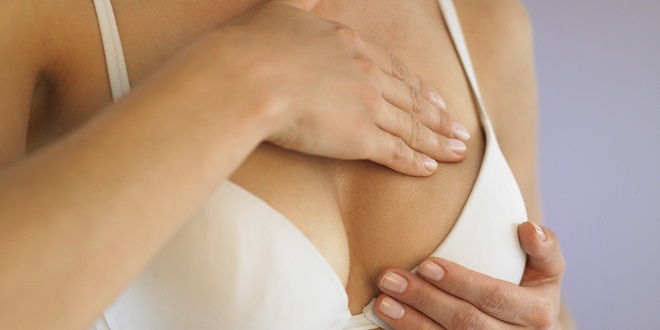
We can talk about the hormonal factor in the occurrence of such a symptom in the following cases:
- age-related changes (puberty and menopause);
- taking certain drugs on a hormonal basis (in particular, we are talking about contraceptives and antidepressants);
- violation of the mode of sexual relations (or their absence);
- genetic factor.
In such cases, with severe pain, the patient may be prescribed hormonal treatment, which stabilizes the estrogen rate.
Mastopathy
The most common disease of the breast in women is mastopathy. The main cause of this disease is also hormonal disorders. In the process of development of the disease, inflammation and compaction of the glandular tissue is observed.
In this case, the disease can be asymptomatic for a long time. Then signs begin to appear: a seal is felt, when squeezed, acute pain occurs, and heaviness is observed. The disease most often occurs in women over 40 years of age. The reason for this is hormonal processes associated with inhibition of reproductive function.
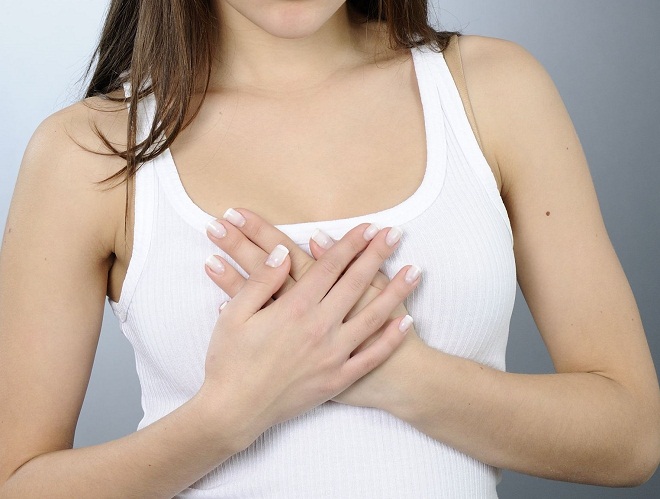
In recent years, the activity of mastopathy has increased significantly. Almost every fifth woman from 25 to 45 years old is faced with its manifestations.
After 50 years, the indicators change, 6 out of 10 of the fair sex are diagnosed with this disease. The insidiousness of mastopathy is that it is very difficult to treat. Exacerbations can occur at any time, regardless of the individual cycle.
Pregnancy
If a week after menstruation, the chest began to hurt, then we can talk about pregnancy. The fact is that in 16% of women after the onset of pregnancy, menstruation continues to go. Usually, menstruation can be observed 1-3 times, while the woman does not realize that she is pregnant.
Despite this, the body begins to actively prepare for the birth of a child. There is an increase in estrogen and progesterone. The breast increases in size, swells, prepares to produce milk.
It does this by increasing the number of blood vessels in the mammary glands. Structural changes in the breast are observed throughout pregnancy. But the pain lasts no more than three weeks.
Necessary diagnostic measures
If you cannot determine the exact cause of chest pain on your own, then you should consult a doctor. Especially if there are alarming symptoms and after menstruation, the stomach and chest hurt. These signs can signal serious pathological problems.
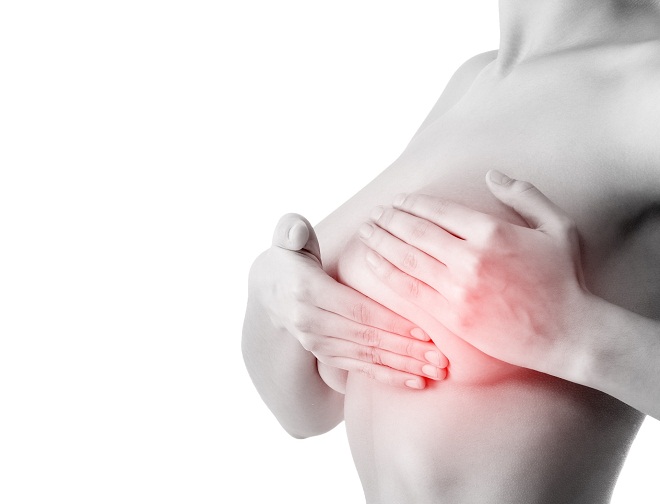

Experts say that in recent years the level of diseases of the mammary glands has increased dramatically. The number of women suffering from cancer is increasing. Therefore, every woman needs to undergo preventive examinations by a mammologist 1-2 times a year.
To conduct a complete diagnosis, it is necessary to undergo a number of such studies:
- mammography - a modern method of research using laser enlightenment of breast tissues;
- Ultrasound examination, not only the mammary glands are visible, but also the lymph nodes near them;
- ductography, this method is used as an auxiliary method, it is used to study structural changes in tissues;
- a puncture is used when a formation is detected, the content is sent for a biopsy to determine the nature.
After undergoing diagnostic procedures, the doctor will be able to determine the cause and, accordingly, prescribe therapy. The treatment regimen has several directions:
- drug therapy (hormonal drugs and painkillers);
- a special diet to normalize metabolic processes;
- surgical intervention (if there are formations).
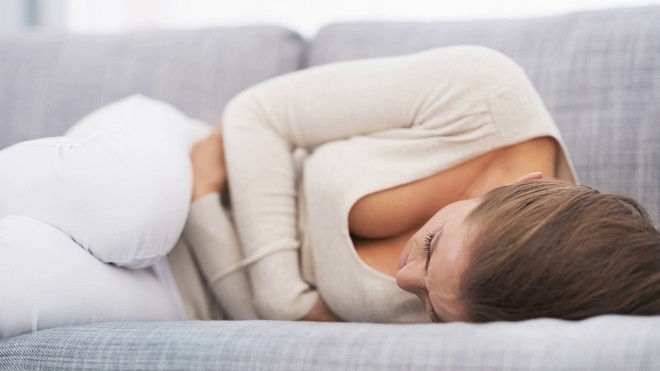
How to reduce pain
If chest pain is not pathological, then a woman needs to look for ways to adapt to such a condition. The number of such patients is significant, so doctors have developed several recommendations that can reduce unpleasant symptoms:
- It is worth paying attention to your diet. Sharp, salty foods, coffee, chocolate can increase pain in the chest. Digestion can also affect this process, therefore, immediately before menstruation and a few days after them, it is worth giving up fried foods and foods that take a long time to digest.
- To improve metabolic processes, you need to drink plenty of fluids.
- Pain is less of a concern for women who exercise. Pumped up chest muscles are not only beautiful, but also effective in the fight against sensitivity.
- Temperature fluctuations adversely affect the condition of the breast. It is worth protecting the mammary glands from overheating and hypothermia.
- A key factor in breast care is regular hygiene procedures.
- It is also worth giving up smoking and other bad habits.
- Underwear should be comfortable, fit in size and best of all natural fabrics.
- Regular sex relieves pain in the chest.
Remember that any pain requires examination and consultation with a doctor. This is the only way to prevent possible serious pathologies!
Video "What is mastopathy and is it so dangerous?"
An informative video that talks about what mastopathy is, why it is dangerous, what are its symptoms, how to detect it, and how to treat it.


